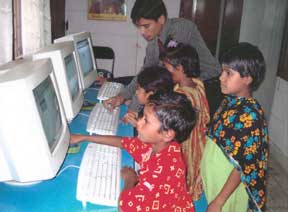 Let’s say you’re a private equity information specialist. And a dancer. An unlikely pair of professions for one person, yet this is exactly the scenario we addressed recently while giving a talk to dancers about how to develop a wholly representative profile on LinkedIn.
Let’s say you’re a private equity information specialist. And a dancer. An unlikely pair of professions for one person, yet this is exactly the scenario we addressed recently while giving a talk to dancers about how to develop a wholly representative profile on LinkedIn.
While writing the “headline” on her LinkedIn profile, meaning the space directly under her name, a participant asked if it’s OK to write “Private Equity Information Specialist and Dancer.”
You see, she’s a client of Career Transitions for Dancers, an organization that helps dancers take their first steps toward second careers, because the physical tolls of dancing make it practically impossible to be a lifetime professional dancer.
So how did we respond? We offered that her inquiry really felt like the question “Is it OK to be who I am?” The answer to which would be “Yes, it is. Always.”
A fantastic thing about LinkedIn is the expectation that you’ll have only one profile, because you’re only one person. Also, you’ll synthesize your complicated background into a single headline, and then outline it within the various sections of Summary, Experience, and Education. Creating a profile on the “professional” social network becomes an exercise in identifying the breadth of your achievements and interests, organizing your story, and then revealing yourself in a coherent framework.
Watch how things unfolded, starting at 6:00, below:
Image via




 Harsh thoughts and negative feelings are among the aspects of our internal life that we often strive to hide at work. Yet Sean Ryan, formerly of News Corp, demonstrates that coming out with your true thoughts, however uncomfortable, can advance your career. For Ryan, being critical of Facebook may have helped him
Harsh thoughts and negative feelings are among the aspects of our internal life that we often strive to hide at work. Yet Sean Ryan, formerly of News Corp, demonstrates that coming out with your true thoughts, however uncomfortable, can advance your career. For Ryan, being critical of Facebook may have helped him